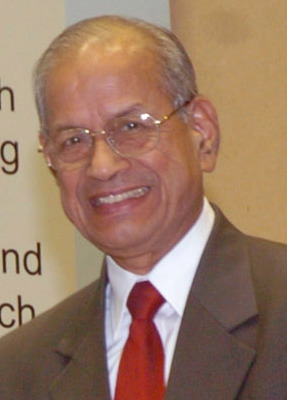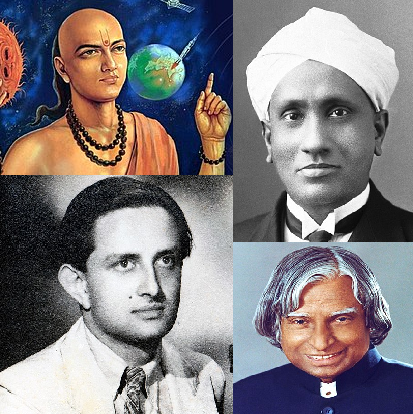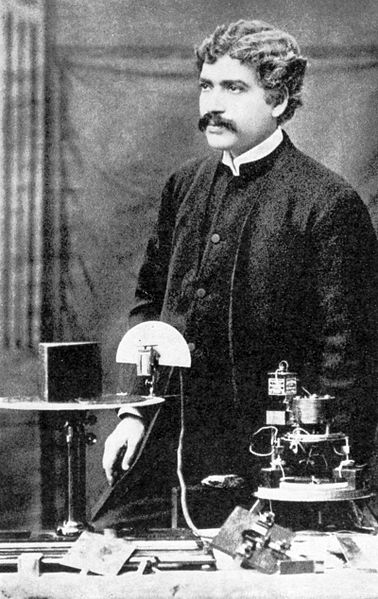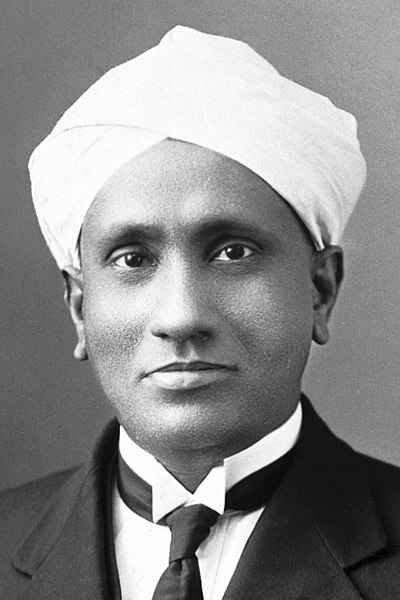Scientific achievements have greatly shaped the course of human civilization. Throughout history, countless researchers have dedicated their lives to unraveling the mysteries of the universe. From the ancient scholars like Aryabhata and Sushruta to modern-day luminaries like CV Raman and APJ Abdul Kalam, Indian scientists have been at the forefront of scientific innovation and discovery. In this article, we shall delve into the remarkable contributions of 12 Indian scientists who have left an indelible mark on the world.
Aryabhata – Pioneering Astronomy

This file is downloaded from wikimedia
Aryabhata, an esteemed astronomer and mathematician from ancient India, revolutionized the field of astronomy. His groundbreaking work, written in his treatise ‘Aryabhatiya,’ provided the world with an understanding of planetary motion and eclipses, over a thousand years before the advent of Copernicus.
Sushruta – Father of Surgery

Sushruta, hailing from the sixth century BCE, is widely regarded as the Father of Surgery. His treatise, ‘Sushruta Samhita,’ describes various surgical procedures and medical treatments. Sushruta performed surgeries, such as rhinoplasty, unique in his era while laying the foundation for modern surgical practices.
Jagadish Chandra Bose – Wireless Communication Pioneer
J.C. Bose was a physicist and biophysicist whose work significantly contributed to the development of wireless communication. He invented the ‘Coherer,’ a device used for detecting radio waves, and demonstrated the possibility of wireless telegraphy thirty years before Marconi’s invention.
CV Raman – Raman Effect and Nobel Laureate
Sir Chandrasekhara Venkata Raman, known as CV Raman, is renowned for his groundbreaking discovery of the Raman Effect. This phenomenon, which explains the scattering of light when it interacts with matter, established the field of Raman spectroscopy. Raman was awarded the Nobel Prize in Physics in 1930, becoming the first Asian to receive this honor.

Homi J. Bhabha – Father of Indian Nuclear Program
Dr. Homi Jehangir Bhabha played a pivotal role in establishing India’s nuclear program and advancing nuclear physics. Recognized for his breakthrough work in quantum theory and cosmic ray research, Bhabha laid the foundation for the Tata Institute of Fundamental Research (TIFR) and the Atomic Energy Establishment, later known as the Bhabha Atomic Research Centre (BARC).
Vikram Sarabhai – Mastermind of India’s Space Program

Dr. Vikram Sarabhai propelled India into space through the establishment of the Indian Space Research Organisation (ISRO). His vision laid the groundwork for India’s first satellite, Aryabhata, and the subsequent successful Chandrayaan and Mangalyaan missions. Sarabhai’s contributions have earned him the title ‘Father of the Indian Space Program.’
APJ Abdul Kalam – Missile Man of India

Dr. APJ Abdul Kalam, affectionately known as the Missile Man of India, made significant contributions to India’s defense and space programs. As a distinguished aerospace scientist, Kalam played an integral role in the development of India’s indigenous guided missile technology, earning India its rightful place in the league of nations capable of missile technology.
Gopalasamudram Narayana Ramachandran – Pioneer of Molecular Biology

Dr. G.N. Ramachandran, a renowned biophysicist, made significant contributions to the field of molecular biology. He is best known for his Ramachandran plot, which illustrates the allowed conformational space for amino acids in proteins. This plot has immensely aided protein structure determination and is widely used in the field.
Verghese Kurien – Father of the White Revolution

Dr. Verghese Kurien, the architect of India’s ‘White Revolution,’ transformed the nation’s dairy industry. His vision led to the establishment of Amul, the cooperative that revolutionized milk production and propelled India to become the world’s largest milk producer. Kurien’s efforts uplifted the lives of millions of rural milk producers and cemented his place as a champion of cooperative movements.
Elattuvalapil Sreedharan – Metro Man of India

E. Sreedharan, popularly known as the ‘Metro Man of India,’ is renowned for his impeccable project management skills and engineering excellence. His leadership was instrumental in the successful completion of noteworthy infrastructure projects like the Konkan Railway and Delhi Metro, revolutionizing transportation in India.
Prof. CNR Rao – Eminent Materials Scientist
This file is downloaded from wikimedia Link: wikimedia
Prof. C. N. R. Rao is an esteemed chemist and materials scientist known for his extensive research in solid-state and structural chemistry. His contributions span a broad spectrum of areas, including nanomaterials, superconductivity, and catalysis. Prof. Rao’s research has earned him several prestigious awards and accolades.
Abhay Ashtekar – Pioneer of Loop Quantum Gravity

Dr. Abhay Ashtekar, a theoretical physicist, is credited with developing the framework of Loop Quantum Gravity (LQG). This groundbreaking mathematical formulation attempts to unify quantum mechanics and general relativity, two fundamental pillars of modern physics.
Conclusion
The contributions of these 12 Indian scientists have significantly impacted the progress of different scientific disciplines. From ancient knowledge systems to cutting-edge research, their remarkable discoveries and innovations continue to shape the world we live in. Their inspiring achievements serve as testaments to the limitless potential of Indian scientific minds and inspire future generations to push the boundaries of knowledge further.



